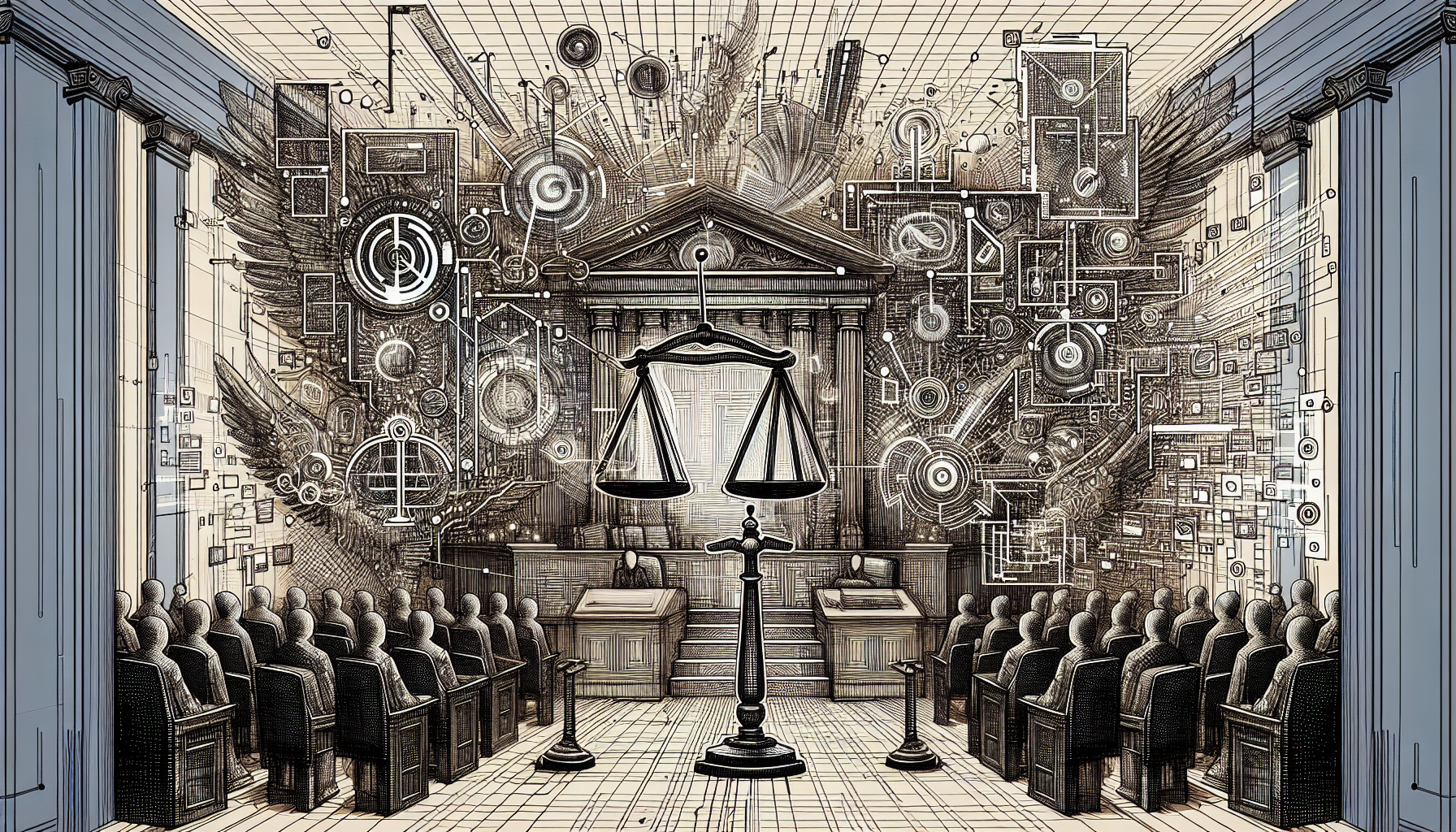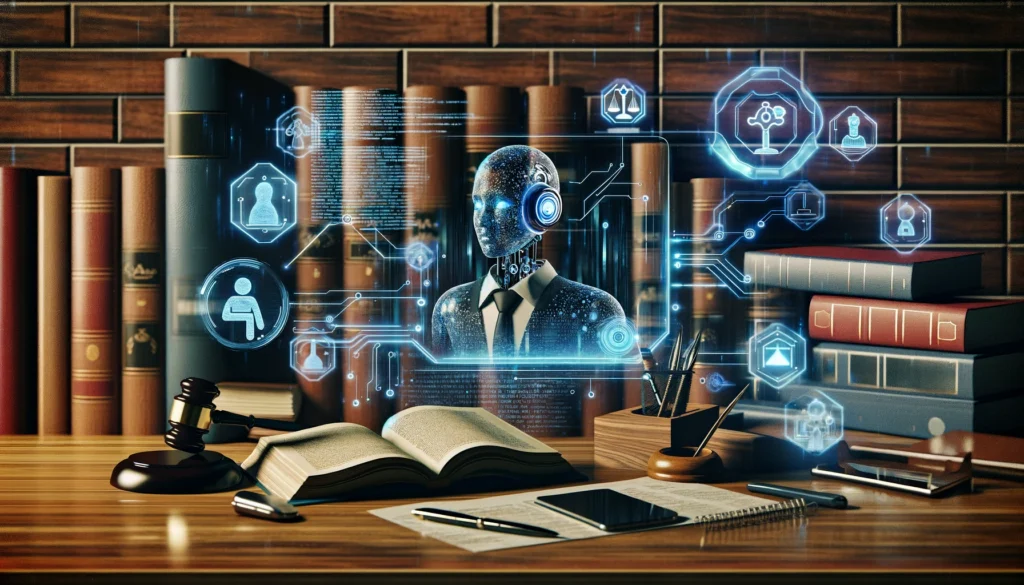
Unveiling the Power of AI in Estate Planning
The advent of artificial intelligence (AI) and advanced language models like ChatGPT is revolutionizing various industries, and estate planning is no exception. AI technologies streamline complex legal processes, making them more accessible and efficient. Among these, ChatGPT, developed by OpenAI, stands out as a valuable tool in estate planning, offering significant benefits in drafting documents, communicating with clients, and conducting legal research.
By integrating ChatGPT into estate planning, legal professionals can optimize their services, enhance client interactions, and ensure accuracy and compliance in their advisory roles.
Streamlining Client Communication: Crafting Crystal Clear Advisories
The effective communication of intricate legal information is fundamental in estate planning. ChatGPT assists by translating complex legal jargon into comprehensible language, thereby enhancing client understanding and satisfaction. Attorneys can leverage the tool to generate client-friendly summaries and advisories.
Examples of Prompts
- Converting Legal Jargon: “Simplify the following legal terms for my client: fiduciary duty, power of attorney, probate.”
- Summary Generation: “Create a brief summary of the following estate plan for a layperson who is unfamiliar with legal terminology.”
Furthermore, ChatGPT can be tailored to cater to individual client needs by considering their specific circumstances and preferences, thereby delivering personalized and precise advisory responses.
Naturally, the accuracy in communication can establish trust and ensure clarity, setting the stage for further exploration of how AI aids in documentation.
Also read:
Mastering Document Drafting and Review: Paralegal Efficiency Multiplied
Drafting and reviewing estate planning documents are labor-intensive processes where the efficiency of paralegals is crucial. ChatGPT can expedite initial document creation and ensure their thorough review.
Initial Draft Creation
With customized prompts, initial drafts for wills, trusts, and other estate documents can be rapidly generated. For example:
- Will Drafting: “Draft a standard will for a client leaving assets equally to three children, with specific bequests to a charity.”
Document Review and Verification
Reviewing legal documents for consistency and accuracy is integral. Effective prompts might include:
- Verification: “Review this trust document for consistency in beneficiary names and distribution percentages.”
By leveraging ChatGPT, paralegals can ensure that legal forms adhere to necessary standards, thus enhancing precision and reliability in estate planning documentation.
Moving forward, AI’s capabilities extend beyond drafting to comprehensive research benefits.
Also read:
Harnessing AI for Comprehensive Legal Research
Legal research is a cornerstone of estate planning, yet it often proves time-consuming. ChatGPT can alleviate this burden by facilitating efficient case law and statutory research.
Research Techniques
Utilize ChatGPT with prompts for summarizing and synthesizing findings, such as:
- Case Law Analysis: “Summarize the key points of [case name] regarding inheritance laws.”
- Statutory Research: “Provide an overview of statutory requirements for establishing a trust in [State].”
The ability to quickly access and synthesize vast amounts of legal information ensures that attorneys remain well-informed and up-to-date with current legal standards, thereby informing more precise estate planning strategies.
The insights from research pave the way for developing tailored strategies using AI.
Also read:
Customizing Estate Planning Strategies with AI Insights
ChatGPT empowers estate planners by offering personalized recommendations based on client data. By analyzing various scenarios, attorneys can optimize estate planning strategies.
Scenario Analysis
Examples of creative prompts for scenario analysis include:
- “Evaluate the impact of different estate tax planning strategies for a high-net-worth client.”
- “Analyze the benefits of setting up a trust versus a will for a client with multiple properties.”
By leveraging AI insights, attorneys can provide tailored advice that aligns with clients’ unique financial and familial situations, thereby ensuring more strategic and effective estate plans.
Maximized customization ultimately enhances the client experience, a topic explored in the subsequent section.
Also read:
Enhancing Client Experience: Personalization and Responsiveness
In today’s fast-paced world, clients expect personalized and prompt service. ChatGPT can aid in crafting responses that cater specifically to each client’s needs and preferences.
Prompt Suggestions for Follow-Ups
- Personalized Interaction: “Draft a personalized follow-up email thanking the client for their recent estate planning meeting and summarizing key points discussed.”
- Quick Response: “Generate a quick and accurate response to a client’s inquiry about the difference between revocable and irrevocable trusts.”
By utilizing AI for efficient communication, attorneys can enhance client satisfaction and trust, ensuring a more responsive and engaging client relationship.
However, the use of AI must be aligned with compliance and ethical standards.
Also read:
Ensuring Compliance and Ethical Use of AI
While AI offers significant advantages, its use must comply with legal standards and ethical considerations. Best practices for compliance include:
- Regular audits of AI-generated content to ensure accuracy and reliability
- Maintaining confidentiality and security of client data
Additionally, attorneys must recognize the limitations of AI, ensuring that human oversight remains central to the final decision-making process.
Incorporating these best practices allows for the ethical and effective integration of AI, thus boosting productivity.
Boosting Productivity: Tips and Tricks for Paralegals
Paralegals can implement several time-saving techniques to optimize workflow with ChatGPT:
- Integrating AI tools for automated drafting and review processes
- Utilizing AI-driven research to streamline information gathering
By embedding ChatGPT within daily tasks, paralegals can significantly enhance their productivity and efficiency, ultimately contributing to a well-oiled legal operation.
Considering the rapid advancements in AI provides a glimpse into the future of estate planning.
Also read:
Future Trends: Staying Ahead in the AI-Driven Legal Landscape
AI technology is rapidly evolving, with promising applications on the horizon. Future trends may include:
- Increased use of AI for predictive analytics in legal outcomes
- Enhanced capability for automatically updating legal documents in real-time
By staying informed and adaptable, legal professionals can leverage these advancements to continue providing cutting-edge estate planning services.
Finally, reflecting on the advantages of AI highlights its transformative potential in legal practice.
Also read:
Wrapping Up: Reflecting on the AI Advantage
In conclusion, integrating AI tools like ChatGPT in estate planning offers unparalleled enhancements in efficiency, accuracy, and client satisfaction. Recapping key points:
- Streamlined communication and document drafting
- Comprehensive legal research and personalized strategy development
- Improved client experience and adherence to compliance standards
Embracing AI is not just a technological upgrade but a strategic move towards more effective and responsive legal practice.


